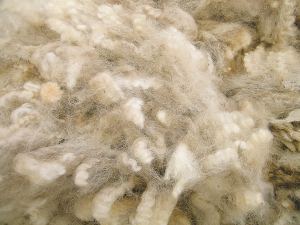The Ministry of Education (MOE) is copping flak over its decision to carpet 800 small and remote rural schools with synthetic tiles rather than wool.
A wide range of disparate groups - including the Green Party, Groundswell, The Campaign for Wool NZ, Federated Farmers and even teachers themselves - have hit out at the ministry for going synthetic.
The MOE claims the synthetic product it is purchasing from an American company is cheaper and can endure heavy use and wear and dirt. It also claims it meets requirements for recycling and carbon footprint goals.
This last statement is widely disputed by critics as are MOE's claims that synthetic products out performs wool.
Federated Farmers Meat & Wool chair Toby Williams says the MOE decision to carpet rural schools in foreign made synthetic carpets instead of NZ grown wool is a slap in the face for Kiwi farmers. He says this decision completely flies in the face of all the Government's rhetoric about improving sustainability, protecting the planet, and phasing out single-use and hard-to-recycle plastics.
"Just the other week, the Government were patting themselves on the back for banning plastic bags, cutlery, straws, and fruit stickers - then they turn around and make a decision like this? It just doesn't add up," Williams says.
"To carpet the average Kiwi home in synthetic carpet is the equivalent of having 22,000 plastic bags on the floor. What do they think happens with all those nylon carpets when people are done with them?
"They go straight to landfill. The Ministry for Education say it chose to go with synthetic carpets because they presented better 'value'. I'd question who for - because it's certainly not the environment or our rural communities."
Williams says it's time for the Government to start backing Kiwi sheep farmers.
"They need to stop carpeting our country in pine trees and start carpeting our classrooms in sustainable products."



















